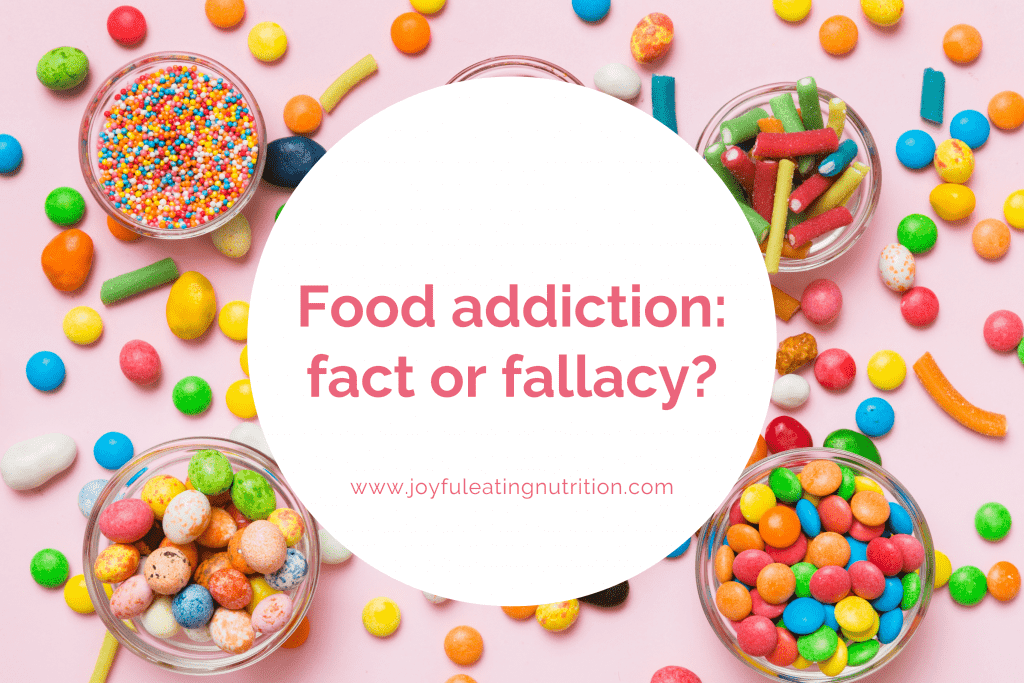If food lights up the same pleasure receptors in the brain as drugs, does it mean that food is addictive?
An increasingly popular theory is that food is addictive. For example, some popular diet and health proponents declare that sugar acts as an addictive agent, eliciting neurobiological changes and hormonal release like that seen in drug addiction. However, the pleasure receptor theory of food addiction is flawed.
Although the same neural reward pathways in your brain light up when you taste ice cream or inject cocaine. So too, do they when you listen to music, ride a roller coaster, enjoy a good workout and have sex.
Simply because food ‘lights up’ the same pleasure receptors in your brain as do drugs, does not automatically imply that food is addictive.
Your substance of choice
Substance-based addictions that occur with drugs, alcohol and cigarettes, although initially eliciting pleasure, are associated with withdrawal effects that propel the addict to consume more to avoid the withdrawal symptoms. Addicts frequently require larger doses to experience an effect. Thus escalating the addiction. Over time the propulsion for another dose is no longer for the pleasure of the substance. It is to prevent withdrawal symptoms, which may impede the person’s ability to function normally.
Food, on the other hand, does not incite withdrawal symptoms. Nor are larger and larger doses of food required to attain pleasure from eating, despite it possibly feeling like this at times!
Now, I do not have first-hand experience with drug addiction, but I would fathom a guess that resisting a cupcake is considerably easier than resisting a line of cocaine. Your compulsion for a cupcake may be strong, but you can function normally.
Food abstinence is not plausible
If food addiction could be classified as an addiction alongside drugs, alcohol or gambling, the approach of abstinence would be impossible as you require food for your survival. Some people may argue that abstinence from specific foods may be necessary. However, to abstain from any food for your entire life would be impossible.
The nutritional catchcry, everything in moderation, would make absolutely no sense when considering an addictive substance. Saying, ‘I’ll just have a little piece of cake,’ is not the same as a small amount of cocaine or one drink for an alcoholic. It may be hard to stop at one cupcake, but you’re not compulsively driven to do so in the same way as with an addictive substance.
Food addiction as a behavioural eating concern
At present, there is insufficient evidence to support a substance-based addiction to food, including the commonly purported addiction to sugar. Further research will shed light on the plausibility of the theory of food addiction. However, I believe that the use of the term addiction places emphasis on the food or substance of addiction rather than understanding and treating the range of factors that contribute to the eating behaviour. Furthermore, it downplays the seriousness of drug addiction, which is significantly more dangerous and overpowering than any desire for cupcakes.
It is my opinion, shared by researchers in this field, that the food addiction theory confuses a loss of control or willpower with addiction. Although that cupcake will create a spike and a subsequent drop in blood glucose, the withdrawal symptoms and requirement for another cupcake or sugary item would be pitifully intense compared to that of cocaine. But that’s just my opinion!
I do not want to diminish how addictive food can seem and how hard it can be to cease eating compulsively. I’ve had to throw Easter eggs in the bin or submerge corn chips in water to prevent eating any more. Despite my experiences, it is my belief that this addictive-like eating behaviour is the result of diet mentality rather than the food itself.
Addictive-like eating behaviour is the result of diet mentality rather than the food itself.
Food addiction theory distracts from the true cause of addictive-like eating behaviour
Regrettably, the food addiction theory draws attention away from the factors that stimulate overeating and compulsive eating, such as dieting, restriction, deprivation, stress and emotional angst, and places emphasis on food as the culprit. Unfortunately, this may fuel the perception of food as either good or bad, often leading to restriction and deprivation, which propels addictive-like eating behaviour. It appears that what has been theorised as food addiction, maybe a consequence of a range of psychological factors rather than physiological responses from the nutritional properties of the food itself.
In this respect, food addiction is more akin to an eating disorder than a substance-based addiction. Accordingly, as with eating disorders, emphasis may be better placed on eating-related cognitive distortions, shape and weight concerns, and dietary restraint rather than attributes of supposedly problematic foods.
Stress plays a role in addictive-like eating behaviour.
Furthermore, stress has been demonstrated to be an important factor in the development of addictions and addiction relapse, both in substance abuse and perceived food addiction. Therefore, without further understanding of food addiction, I believe that reducing the stress of eating right may do more to resolve addictive-like eating behaviour.
So, rather than resisting offending foods, I encourage you to investigate why you crave or compulsively eat these foods. Consider whether it is the food itself or its use to invoke immense pleasure, numb out, escape, relax, destress and so on, which creates the addictive-like behaviour.
I encourage you to eat the foods you perceive that you are addicted to mindfully and identify what you enjoy about the food. The same cannot be said for illicit drugs and alcohol!
Want to create a more relaxed and joyful relationship with food?
Grab yourself a copy of the book, Joyful Eating or the FREE Chapter: Debunk the Diet Myth.
Download the FREE Chapter: Debunk the Diet Myth
Discover the physiological and psychological reasons why diets don’t work, whether for weight loss or a wellness diet that promises ‘optimal health’.
Joyful Eating: How to Break Free of Diets and Make Peace with Your Body
I cover our relationship with food in many blogs on this site and welcome your questions to help you to relax and enjoy food without guilt and shame. Submit your questions in the comments below, which I may address here or cover in a future blog.
Research supporting that food is not addictive
- Blum K., Werner T., Carnes S., Carnes P., Bowirrat A., Giordano J., Oscar-Berman M., Gold M. Sex, drugs, and rock ‘n’ roll: hypothesizing common mesolimbic activation as a function of reward gene polymorphisms. J Psychoactive Drugs, 2012. 44(1): 38-55.
- Pressman P., Clemens R.A., Rodriguez H.A. Food Addiction: Clinical Reality or Mythology. Am J Med. 2015. 128(11): 1165-6.
- Ziauddeen H., Fletcher P.C. Is food addiction a valid and useful concept? Obes Rev, 2013. 14(1):19-28.
- Hebebrand J., Albayrak Ö., Adan R., Antel J., Dieguez C., de Jong J., Leng G., Menzies J., Mercer J.G., Murphy M., van der Plasse G., Dickson S.L. “Eating addiction”, rather than “food addiction”, better captures addictive-like eating behavior. Neurosci Biobehav Rev, 2014. 47: 295-306.
- Ziauddeen H., Farooqi I.S., Fletcher P.C. Obesity and the brain: how convincing is the addiction model? Nat Rev Neurosci. 2012. 14;13(4): 279-86.
- Gearhardt A.N., White M.A., Potenza M.N. Binge Eating Disorder and Food Addiction. Curr Drug Abuse Rev, 2011. 4(3): 201–207.
- Yau Y.H.C., Potenza M.N. Stress and Eating Behaviors. Minerva Endocrinol, 2013. 38(3): 255–267.
- Sinha R., Jastreboff A.M. Stress as a common risk factor for obesity and addiction. Biol Psychiatry, 2013. 1;73(9): 827-35.



4 comments
Hey, there and thank you for your info. I’ll lookout for more of your respective interesting content.
Make sure you update this again soon.
Have a great day.
Thanks.
I’m pleased that you’ve found this content useful. I look forward to sharing more with you.
Tansy
I look forward to your next post!
Thanks for sharing.